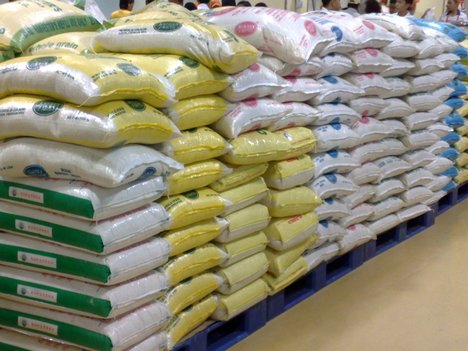
Rice Devt Council Bill Passes Second Reading – Senate
The Senate on Wednesday passed through second reading a bill seeking to establish the National Rice Development Council to reposition the sub-sector in the agriculture value chain.
Titled “A Bill for an Act to establish the National Rice Development Council of Nigeria to provide guidance on rice research, comprehensive development of the rice sector, and the organisation of rice stakeholders to enhance local production of rice in Nigeria and for related matters,” aims to coordinate activities among rice farmers, processors, millers, researchers, and marketers to optimise the entire rice value chain.”
Recall that the bill, sponsored by Senator Adamu Aliero (APC, Kebbi Central), was initially passed by the 9th Senate and forwarded to the then President, Muhammadu Buhari, in 2023.
It, however, did not get presidential assent, leading to its reintroduction in the 10th Assembly.
Leading the debate on the general principle of the bill, Aliero said, “The National Rice Development Council Bill seeks to establish a platform that would lead to a comprehensive development of the rice sector and the organisation of rice stakeholders to enhance local production of rice in Nigeria.”
He made a case for a central coordination of the rice sector, given the legion of associations churning out different policies on the best way to get the most out of the staple crop.
Read Also:
Aliero listed the associations to include the Paddy Rice Dealers Association of Nigeria, Rice Farmers Association of Nigeria, Rice Processors Association of Nigeria, Rice Millers of Nigeria, Women Farmers Advancement Network, Ofada Rice Producers, Abakaliki Rice Producers Association, and Women in Rice Platform.
“This bill, therefore, seeks to establish that rallying point and a comprehensive national operational and governance structure for a complete rice value chain process in the country,” he added.
The former Kebbi State governor said that when established, the council will guarantee improved rice production through coordinated research, development, training, and dissemination of best practices are expected to boost rice yields and quality.
Others, he said, include increased farmers’ income through “Enhancing production efficiency, cutting costs, and improving market access would raise farmers’ earnings; enhanced food security through “A stable rice supply chain, which is critical to feeding the Nigerian population.”
Other benefits include industry regulation, market development, job creation, economic growth, and self-sufficiency.
According to Aliero, who recently defected to the All Progressives Congress from the Peoples Democratic Party, “Rice is one of the most important staples in our national diet, and its development can bring numerous benefits to the economy.
“Establishing a National Rice Development Council will drive the growth and sustainability of the rice industry, making Nigeria not only self-sufficient but also a major exporter in the global market.”
Following support from the lawmakers present at the plenary, the Senate President, Godswill Akpabio, who presided over the session, referred the bill to the Senate Committee on Agriculture for further legislative action.











































